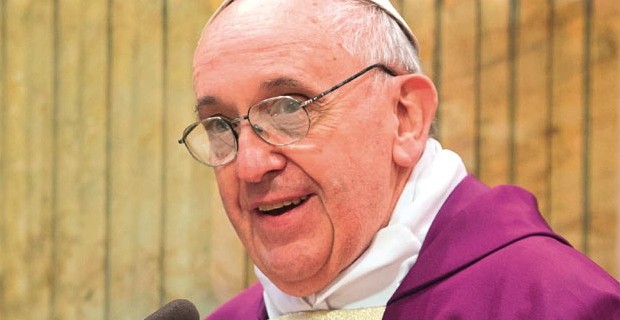Crisis Magazine
Written by Regis Martin

While it is certainly true that all roads lead to Rome, there is something to be said for all those other roads leading out from Rome. In other words, before we set out on the road to Rome, shouldn’t there be something already in place, in Rome, the gravitational pull of which first radiates out to the world? Only then may it draw the distant and weary traveler back home to Rome. What is the point of a road if it doesn’t go both ways? Cervantes could not have been more mistaken, therefore, when he said: “The road is better than the Inn.” How can that be? Because it is only for the sake of the Inn that you set out upon the road in the first place. Where else does the careworn traveler hope to be if not in the Inn at the end of the journey?
Rome is the Inn at the world’s end. And we do not love her, as Chesterton wisely reminded us, because she is great. It is rather because she is loved that she is great. Ah, but in order to be loved she must first be lovely, and thus in her loveliness she goes out in search of other people to love. This is why her immediate impulse must always be to build bridges, not walls. First she goes out in search of the lost sheep, putting down bridges so as to reach them; only later does she throw up walls to surround and protect them from wolves.
Hasn’t that been the basic marketing strategy from the beginning? What were the essential marching orders issued by the founder of the Christian religion? To answer that one just take a look at the last two verses of the final chapter of St. Matthew’s Gospel: “Go therefore and make disciples of all nations, baptizing them in the name of the Father and of the Son and of the Holy Spirit, teaching them to observe all that I have commanded you; and lo, I am with you always, to the close of the age” (28:19-20).
Could Jesus have put it any plainer than that? Why is it, then, that we Catholics seem so strangely, stubbornly resistant to the idea, the injunction actually, to go out and spread the Good News? Almost, it seems, to the point of neurosis. How can something so central to the teaching of the Gospel become an impediment among those who already believe in the Gospel? (“Christians who are afraid to build bridges,” Pope Francis tells us, “and prefer to build walls, are Christians who are not sure of their faith, not sure of Jesus Christ.”) Why then this fear? In hanging fire do we not betray a want of belief, of a faith no longer fired by love? A faith grown cold and anemic cannot survive, much less share its marvels with others. Hardly an appealing face, one would think, to present to a world thirsting for the redemption of Jesus Christ.
How very unlike the Apostle Paul, who could not even bring himself to boast about his own preaching since to do so was nothing more than an exigency inscribed in the gospels themselves. “Woe to me if I do not evangelize” (1 Cor 9:16). This, after all, is the job description of anyone who puts on Christ. Indeed, the evangelical imperative was a theme so recurrent at Vatican II that an inventory of its appearance reveals more than 200 showings. And, to be sure, no architect of the Council felt its convicting force more so than the future John Paul II, who returned again and again to the necessity of giving it expression. “No believer in Christ,” he resolutely told us in Redemptoris Missio, his 1990 encyclical announcing a new evangelization, “no institution of the Church, can avoid this supreme duty: to proclaim Christ to all peoples.”
Read full article here.

We need to earn more spiritual frequent flyer miles!
Very good piece!
Get the whole picture by reading Pope Francis: The Pope from the End of the Earth, by Thomas J Craughwell, St. Benedict Press.
then we could just baptize…..now we must jump through loops. How can we evangelize as we did originally with so many canons we are forced to follow?
Jehovah’s witnesses having been doing it for decades and people laugh at them. They keep going though. Could the same ones who laugh at them now turn around and start preaching door to door like the apostles did in Acts?